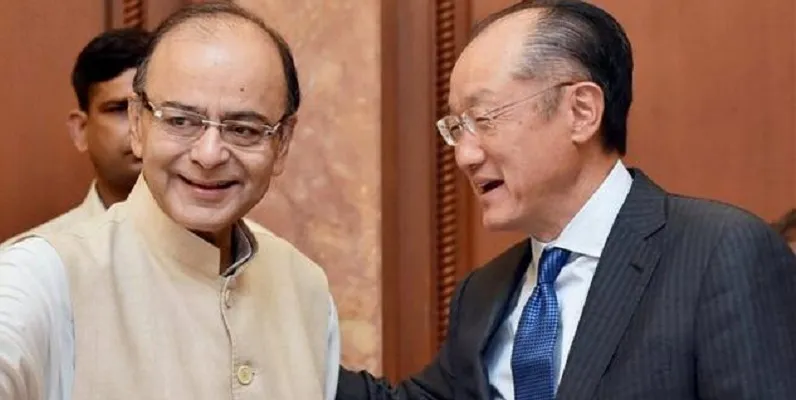India's GDP growth remains strong at 7.7 for 2016-17: World Bank
Describing South Asia as a global growth hotspot, the World Bank has said that India's GDP growth will remain strong at 7.6 percent in 2016 and 7.7 percent in 2017.

The World Bank, in its latest biannual South Asia Economic Focus report, said that,
In India, GDP growth will remain strong at 7.6 percent in 2016 and 7.7 percent in 2017, supported by expectations of a rebound in agriculture, civil service pay reforms supporting consumption, increasingly positive contributions from exports and a recovery of private investment in the medium term. However, India faces the challenges of further accelerating the responsiveness of poverty reduction to growth, promoting inclusion, and extending gains to a broader range of human development outcomes related to health, nutrition, education and gender.
According to the report, South Asia remains a global growth hotspot and has proven resilient to external headwinds such as China's slowdown, uncertainty around stimulus policy in advanced economies, and slowing remittances. The main challenges remain domestic, and include policy uncertainty as well as fiscal and financial vulnerabilities.
In Pakistan, economic activity is projected to gradually accelerate over the medium term, reaching 5.0 percent in 2017 and 5.4 percent in 2018, building upon 4.7 percent GDP growth at factor cost in 2016 (5.7 percent at market prices).
Also read : How we managed to crack a deal in Russia, a poorly-ranked country by World Bank for ease-of-doing business
Growth in Bangladesh has remained robust despite internal and external headwinds, it said. Growth will be sustained at 6.8 percent in 2017, coming slightly down from 7.1 percent in 2016, the report added. On India, the report said economic growth remained robust, which, as in the past, is expected to support continued poverty reduction.
This year is expected to see some convergence in rural and urban economies, supported by stimulating policies, such as the passage of GST and civil pay revisions, along with good monsoons, the report said.
Re-balancing of growth drivers will in turn support the sustainability and inclusiveness of GDP and household income growth going forward, it said.
Optimism on the growth front needs to be balanced with caution when translating to broad-based poverty reduction. Despite the recent success in poverty reduction, gains have been uneven, with greater progress in states and social groups that were already better-off. India faces the challenge of further accelerating the responsiveness of poverty reduction to growth, enforcing inclusion of presently excluded groups (such as women and scheduled tribes), and extending gains to a broader range of human development outcomes related to health, nutrition, education and gender, where the country continues to rank poorly, said the report.







